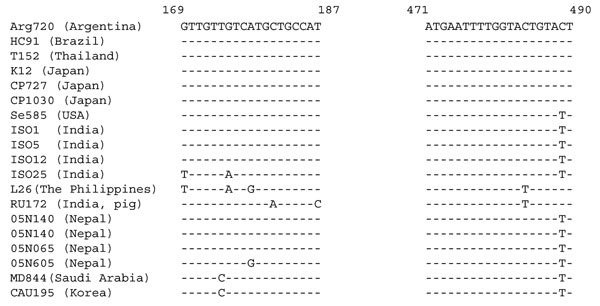Volume 13, Number 3—March 2007
Dispatch
Detection of G12 Human Rotaviruses in Nepal
Figure 2

Figure 2. Comparison of the primer binding regions of the VP7 genes of G12 rotavirus strains detected in various geographic locations. Primers were designed based on the Arg720 sequence. The sequence of the forward primer is as shown in the figure; the sequence of the reverse primer is complementary to that shown in the figure.
Page created: June 29, 2010
Page updated: June 29, 2010
Page reviewed: June 29, 2010
The conclusions, findings, and opinions expressed by authors contributing to this journal do not necessarily reflect the official position of the U.S. Department of Health and Human Services, the Public Health Service, the Centers for Disease Control and Prevention, or the authors' affiliated institutions. Use of trade names is for identification only and does not imply endorsement by any of the groups named above.